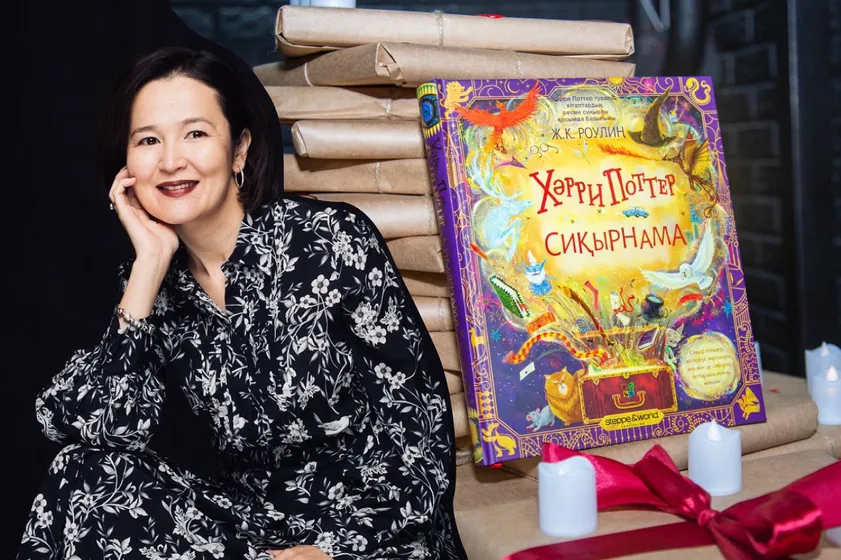Raisa Sairan Kader, the founder of Steppe & World Publishing, stands out as one of the key advocates for the Kazakh language in the country. Born in Mongolia and having spent much of her life abroad, in 2017 she established a publishing house specializing in translating world literature into Kazakh, and later moved to Almaty to commit to this endeavor.
Six years later, Steppe & World Publishing can boast bestsellers like the Harry Potter series, ‘Norwegian Wood’, and ‘Chronicles of Narnia’. Most recently, the translation of ‘The Harry Potter: Wizarding Almanac’ into Kazakh was released on the same day as the original version.
In the exclusive interview with QazMonitor, Raisa Sairan Kader shares her compelling journey into the world of publishing, discusses which books are popular among Kazakh readers, and explains why children should read in Kazakh at least 15 minutes a day.
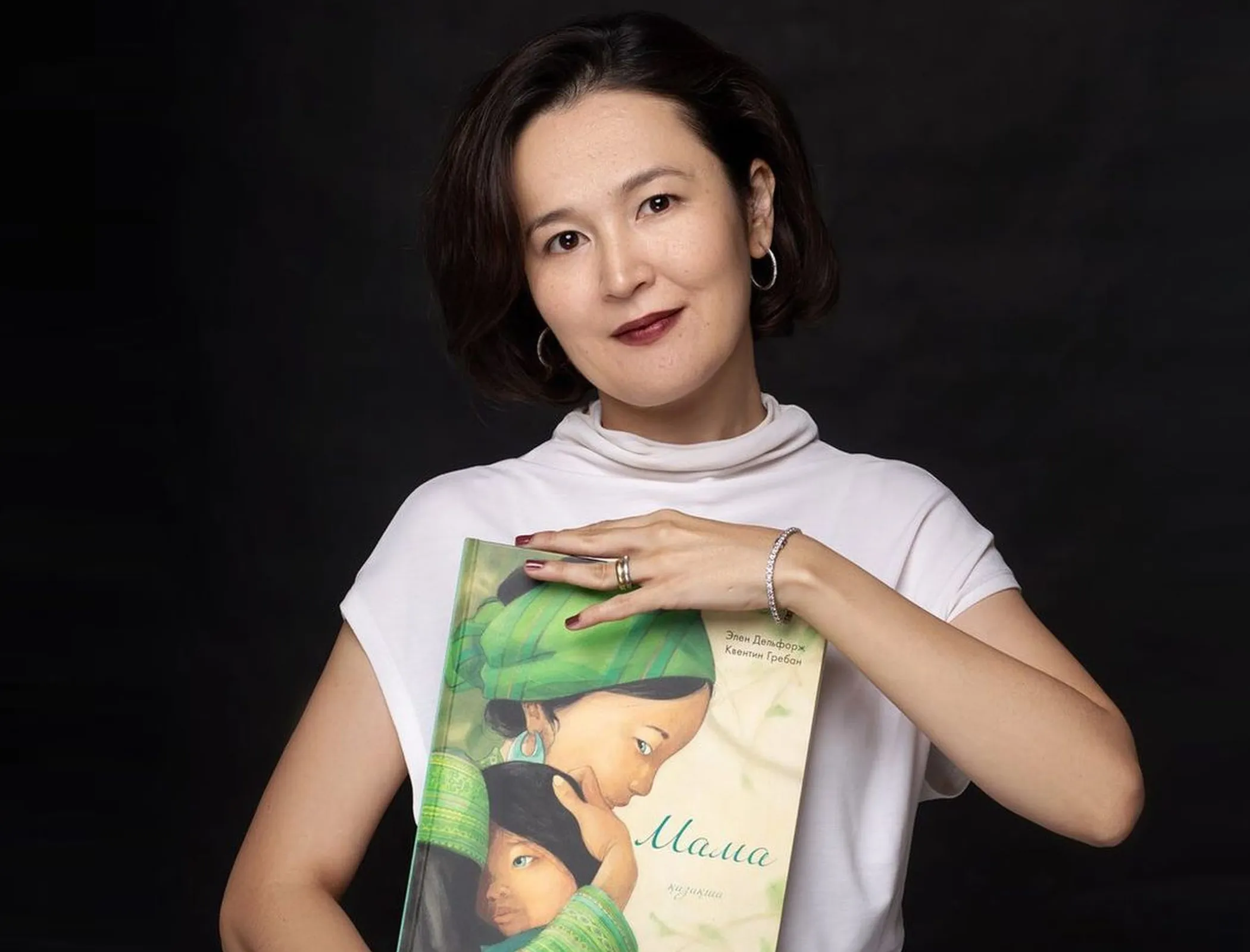
Your life story is quite fascinating. You were born in Mongolia and lived in various countries across the world. Growing up, how was the Kazakh language a part of your life?
I was born in Mongolia, in the capital Ulaanbaatar, to a diplomatic family. I grew up hearing my parents only speak Kazakh at home. It was the language of communication within the family, so it was very important. At the same time, they made sure that we stayed connected to Kazakh culture as well, whether it was music, art, theater, or literature. Having that Kazakh identity within me was very important, and knowing the language is a big part of my identity.
When and how did you come up with the idea to start translating books into Kazakh?
I grew up abroad most of my life, most of my childhood was spent in the Middle East, and then in my student years I studied in the UK, and the Netherlands, and I lived in Germany for a long time. My children were born in Europe so we were surrounded by books. You know, Europe is a very much reading continent, everybody reads there.
I came to visit Almaty in 2016 to see the country, to see some friends. At that time, I went to the bookshop to buy books in Kazakh for my children. I could not find any. I felt that it was a very tragic situation that there was nothing available, nothing that my children would like. I cannot say that I could not find books; there were books, but these were the books that were not very attractive to children.
They were not comparable to books that we saw in Europe, for example. For that reason, I thought for a very long time; I couldn't resist it, so I started this business of publishing in the Kazakh language.
I think it’s amazing that you saw the problem and decided to take the first step to solving it.
Absolutely, because when I asked everyone, “Why aren’t there any books [in Kazakh]?”, everybody put the responsibility on the government. For me, it was like putting the responsibility on someone else, on some other entity. I usually like to take responsibility when I can do something positive, and that was my intention in being an active citizen. First of all, a global citizen, and then an active Kazakh citizen. In this way, we promote language, literature, and cultural exchange.
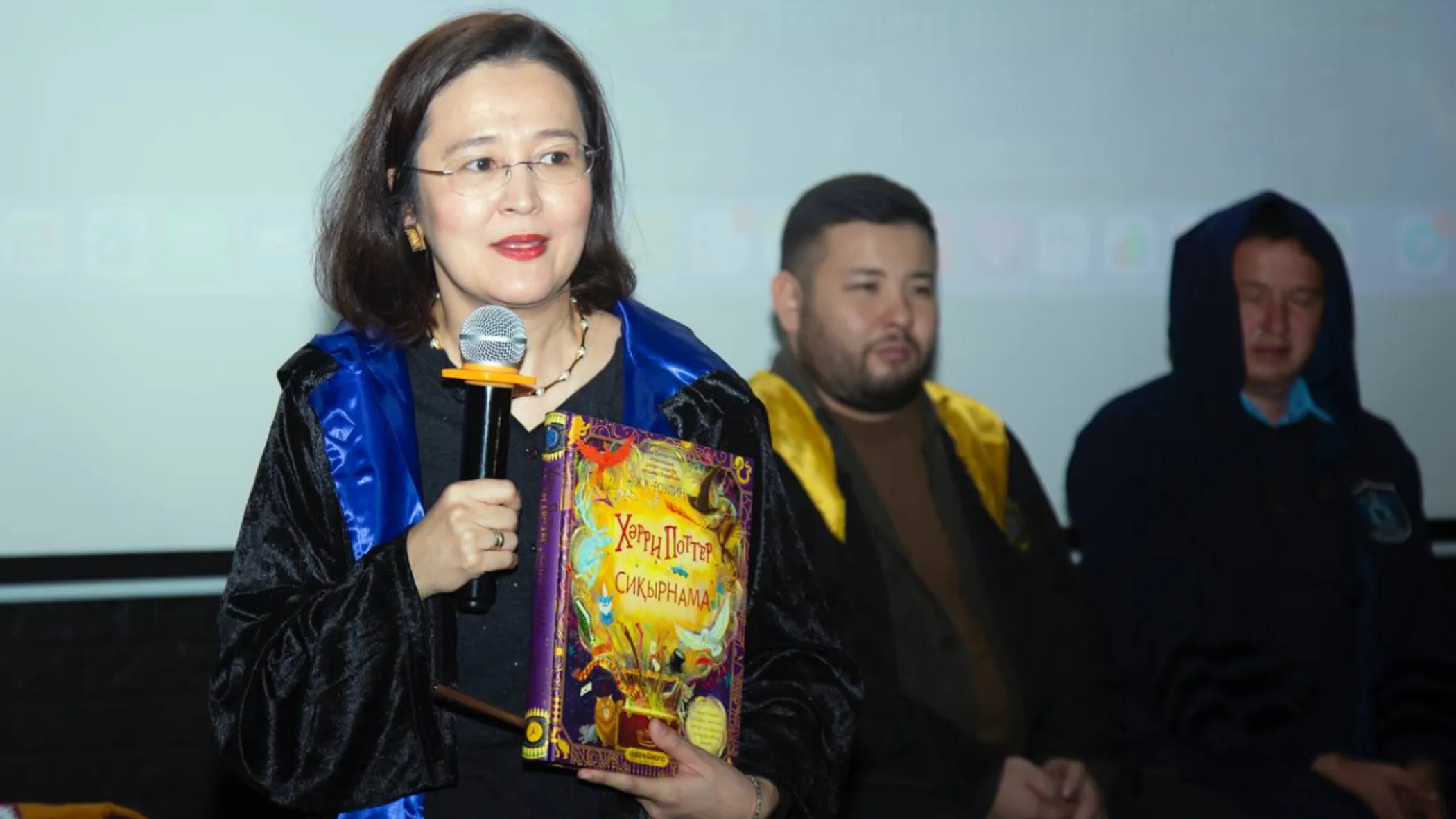
How do you select books for translation and publication? Do you have any criteria that you consider in the selection process?
80% of books that we publish are for children but we publish for adults as well: fiction, nonfiction, and a few reference books. Out of the book selection we choose the best books available. Books with very deep messages, whether it's kindness, friendship, or other messages.
So far, the anchor product for our publishing house is the Harry Potter series. It is a book about wonderful friendships, the fight between the evil and the good, and teenagers striving for justice. It is very appealing to young readers as well because when they go through a period of rebellion, or teenage depression, you can find everything in this amazing series of Harry Potter. A lot of young people tell us that reading Harry Potter has helped them many times with depression, family troubles, and other troubles they go through during this period. So I feel that books like that really help readers become good people.
We publish well-known classics such as ‘Chronicles of Narnia’, titles by Roald Dahl like ‘Charlie and the Chocolate Factory’, ‘Matilda’, and ‘The Big Friendly Giant’. Everyone knows them. We also published an amazing book that every person must read, which is Anne Frank’s diary. We should not forget the history of what happened in World War II.
We also publish illustration books for small children, such as Eric Carle’s ‘The Very Hungry Caterpillar’ in the Kazakh language. I just met the agents from Eric Carle’s publishing yesterday, and I explained to them what a privilege it is to be able to translate these wonderful books into Kazakh language. Because the children of Kazakhstan and Kazakh-speaking children around the world will have a chance to read and see these beautiful illustrations from such a young age. And when children read these books, we expect a much healthier, brighter future ahead.
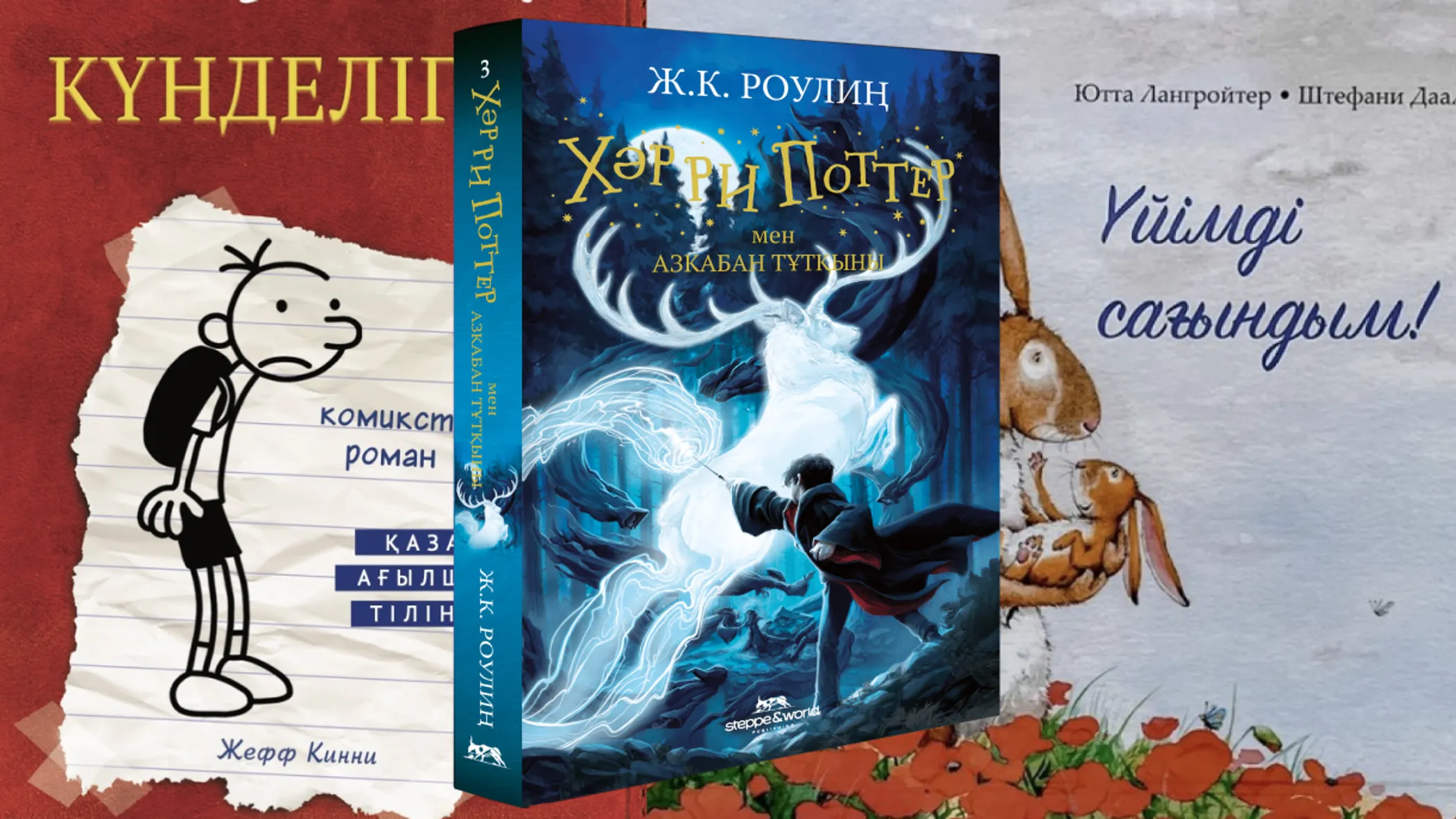
Recently, your translation of ‘The Harry Potter: Wizarding Almanac’ was released at the same time as the original version. How did you feel about this when you first found out?
Being part of the publishing industry, you have to be at the Frankfurt Book Fair every year. So after I came back, my colleague from Bloomsbury Publishing and the agents from JK Rowling’s [publishing] informed me that there was a new book coming out, "It is still not finished but it will be finished soon. Would you like to join? It will be published in many languages and everything will come out at the same time." So [the book has been published] in many languages; I already saw the Polish and the French versions, and everything is coming out at the same time. I thought this was a wonderful opportunity.
When we introduced the book last week to our readers, there was so much excitement because usually, books come to Kazakhstan in translation after a little bit longer period of time. This time it came out exactly at the same time, we didn’t even see the English version. I just saw the German version yesterday, but I am going to see the English version today.
This is a very exciting and historical moment because such things have never happened before. We can be on par, on an equal level with other publishers and other countries, we are not inferior. Lots of times we have this very big inferiority complex that maybe we are not better, but we are better and we can do all this stuff: these wonderful books and publishing, everything. So I felt very much connected to the world, that we are not isolated, that we are not so far away.
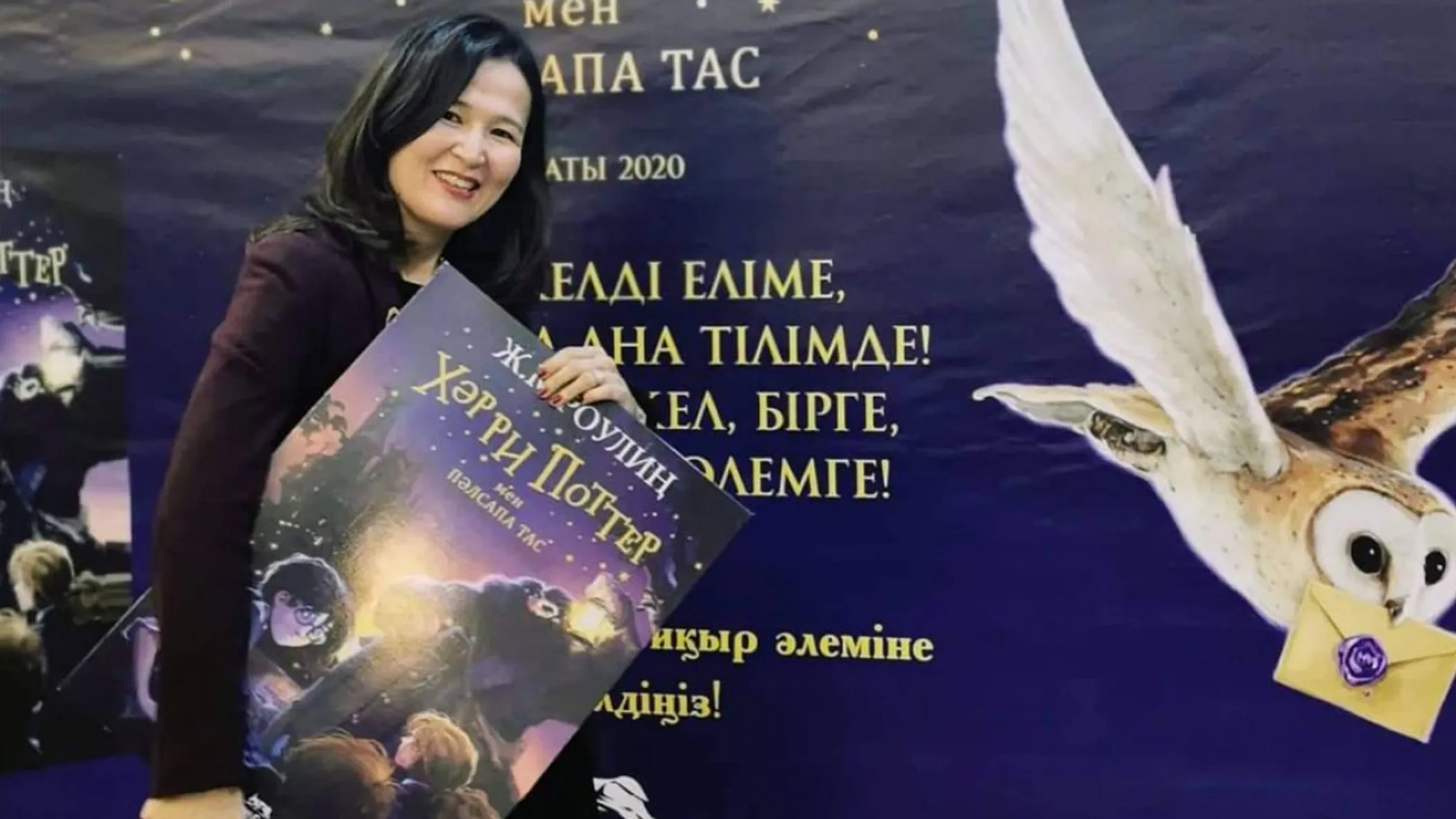
Steppe & World Publishing has a wide range of books published, from ‘Diaries of a Wimpy Kid’ to ‘Norwegian Wood’. Can you share which books released by your publishing house are particularly significant to you?
I think every book is very important to me. I cannot just go and say, “This book is a very good one”, but in terms of marketing and recognition, of course, our anchor product Harry Potter was very, very important.
However, for myself, I absolutely adore the translation of 'The Gruffalo' in the Kazakh language. I just met Axel Scheffler, the illustrator, yesterday, and the translation came out as if it was written in Kazakh. It’s our readers’ favorite. They all mention it and it’s also my personal favorite. I also love the books by Roald Dahl. They have very important messages for both children and adults, and they’re also very witty, funny, and mischievous, everything that’s so exciting for a reader.
For adults, of course, the ‘Norwegian Wood’ translation came out perfectly. The emotions you get from reading in your native language... it came out so well, it is really hard to describe because every reader gets very emotional from this. You could feel the beauty of language. Every word, phrase, and sentence can touch your heart. And that is the most important thing.
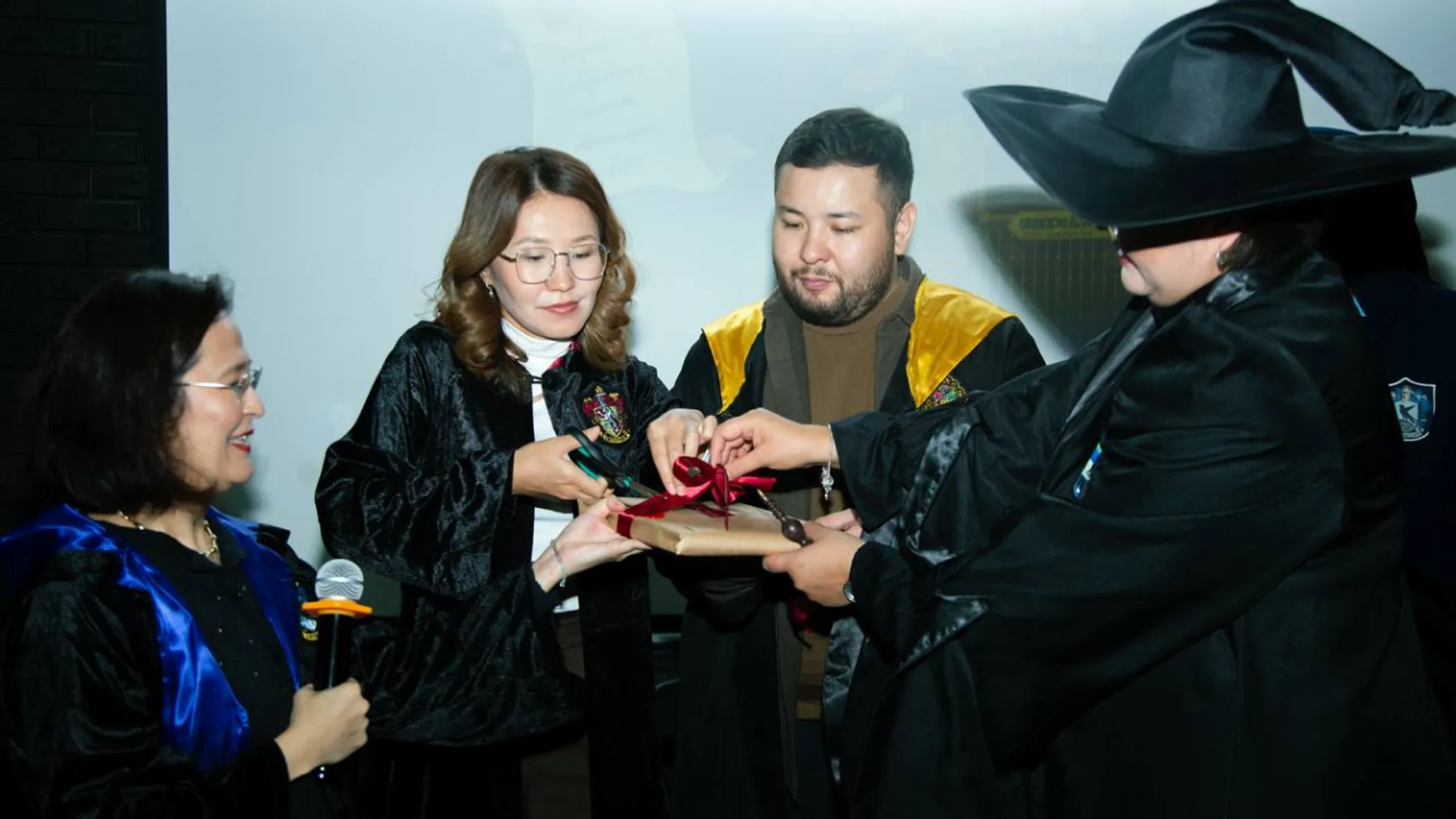
Do you see the interest in Kazakh books growing among the younger generation? What factors do you think contribute to this trend?
Absolutely. Before I started publishing books, there were none available, you know? Nothing interesting.
There was a stereotype that books published in the Kazakh language were not of high quality. They were incomprehensible, written in complex language, and so on. But when we started introducing our books, our chief editor, Nazgul Kozhabek, made a great effort to make sure that all of our books were easily understandable and had proper grammar. Easy to understand, easy to read. So the stereotype has changed.
Now when people buy our books, they tell me they can just close their eyes and buy any book. They do not have any doubts about the quality. That is very important when you start developing the market because this was an almost empty market. But if you come in, you need to have high benchmarks where you really focus on the quality.

As the head of a publishing company, you work closely with authors, translators, and the literary community. How do you foster collaboration within the industry?
This is all about project management. As with every project management, you have difficulties, you need to maneuver, and you need to negotiate. So I think it is all about communication. When you find the keys to communication, you can make sure the project runs well and on time.
Could you share your perspective on the current state of the literary industry in Kazakhstan? What are the challenges it is currently facing?
I think the book industry is at a very early stage of growing. I am very optimistic that in the next 5-10 years we will have a very much blooming industry. Of course, we still do have challenges regarding the culture of reading. People are still not putting reading as the priority or part of their life, whether it’s for education or entertainment. So we still need to work on that, on the cultural aspects. I think the more books are available in lots of different places, at the supermarkets, or where people can easily buy them, then there will be lots of change, I think, among the community.
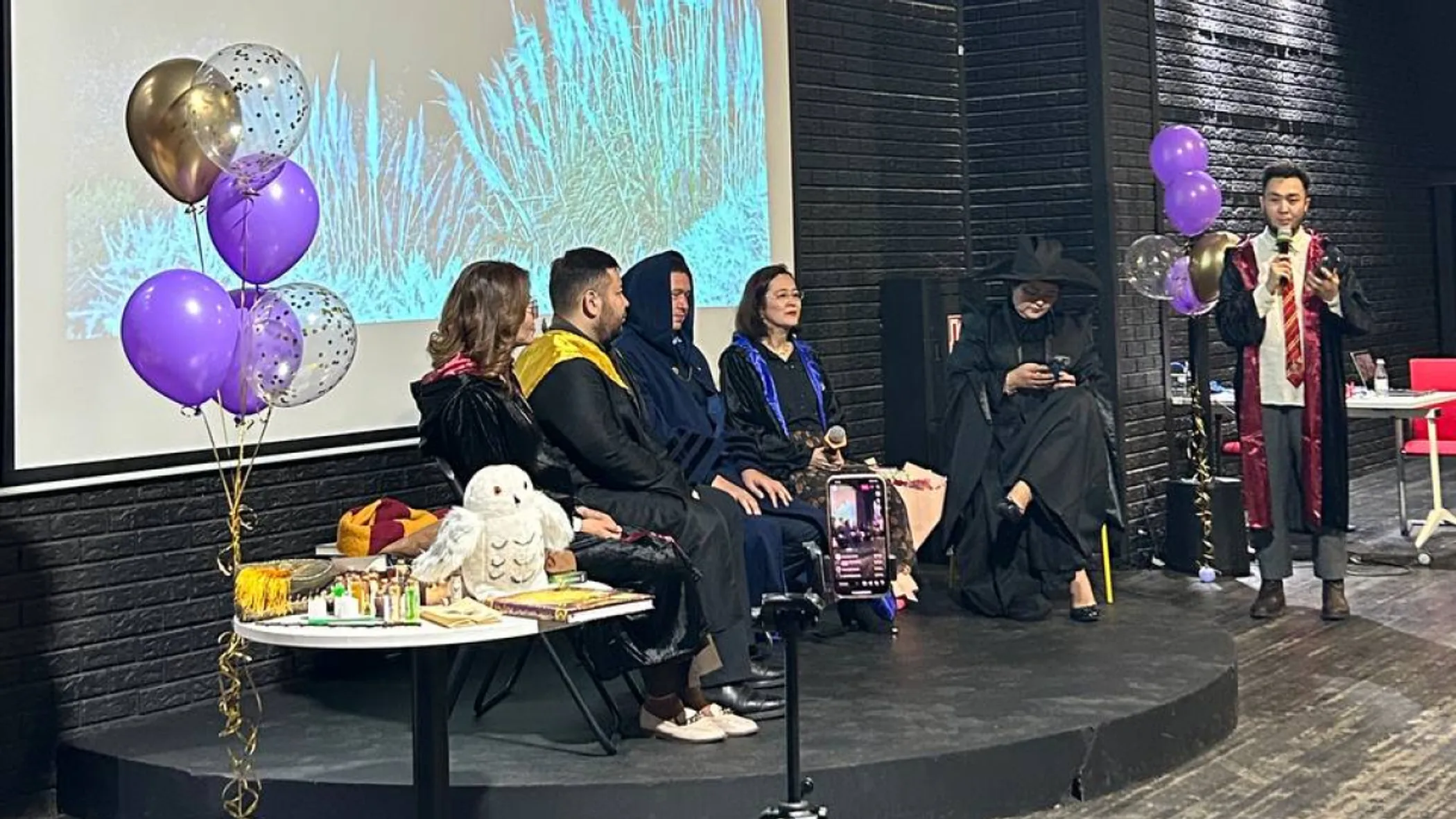
Encouraging the younger generation to read more in Kazakh can be quite a challenge. Are there any measures that can spark their interest in the Kazakh language and literature?
I think the number one responsibility is on the parents. Parents should get them a lot of books, read with them, and spend time with them. What we have is a generation that’s growing on phones, YouTube, and TikTok, which is very unhealthy. I can also see it from my own children. But we need to make sure there is a balance and that they read books every day. My baby even loves flipping through the board books or illustrative picture books. It is very important that they stay near the books. And for parents to have this opportunity, we, publishers, must publish more books as well. So it goes both ways. And of course, for primary schools, it is teachers, it is the schools that should provide the opportunity to have books in their libraries and make sure that children read at least 10 to 15 minutes in the Kazakh language.
